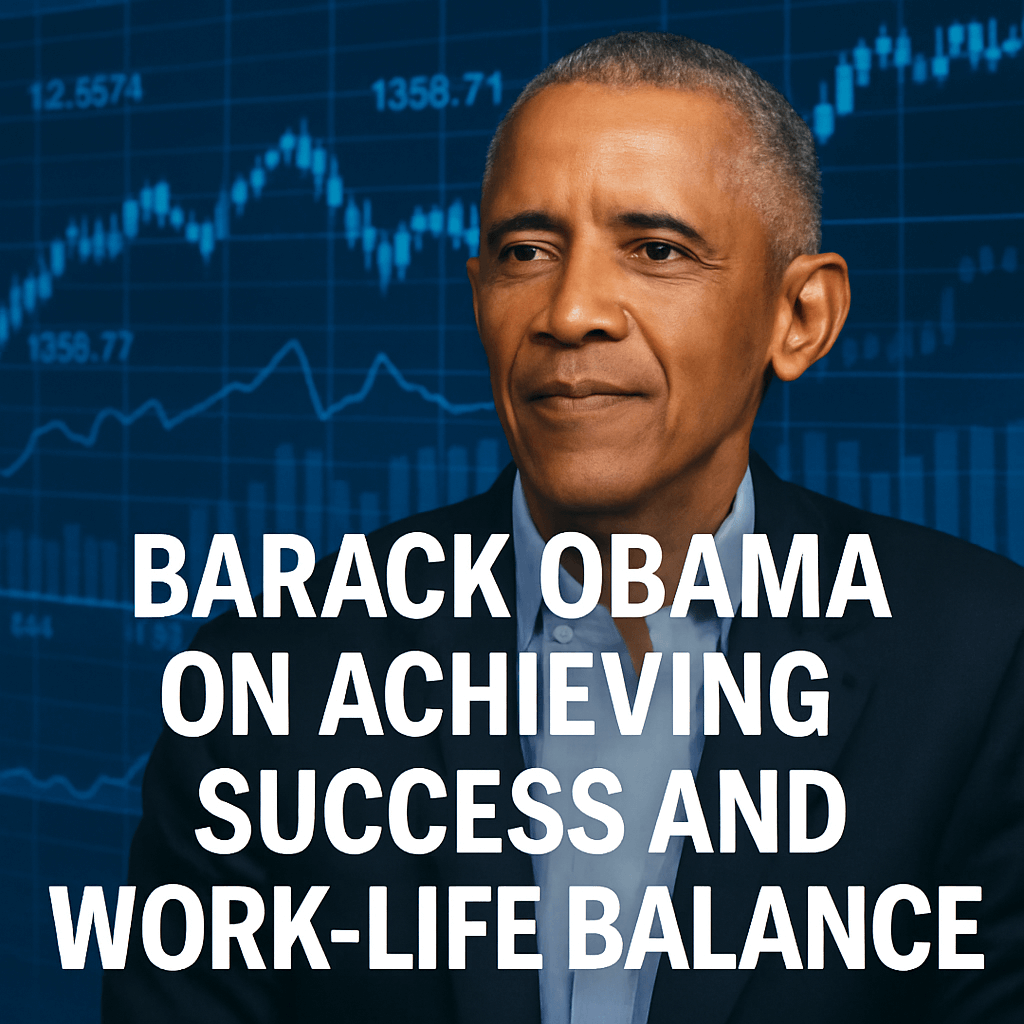Barack Obama on Achieving Success and Work-Life Balance

Former President Barack Obama recently articulated a viewpoint that challenges the conventional notion of work-life balance, particularly for individuals striving for significant career accomplishments. During an episode of The Pivot Podcast, Obama stated that to truly excel in fields such as sports, music, business, or politics, one must sometimes prioritize work at the expense of personal life. The seasoned politician emphasized, “If you want to be excellent at anything—sports, music, business, politics—there’s going to be times of your life when you’re out of balance, where you’re just working and you’re single-minded.” This admission reflects not only his personal experience but also a broader understanding of the sacrifices required for professional success.
The Personal Toll of Ambition
Obama’s journey to the White House was marked by rigorous campaigns, during which he found himself entrenched in a relentless pace that lasted over a year and a half. He recalls the challenges of balancing his burgeoning political career with family responsibilities, noting that his wife, Michelle Obama, took on a substantial share of parenting duties during this period despite her own career commitments. This imbalance led to what he describes as a necessary reevaluation of his priorities once he assumed the presidency.
As president, Obama’s regime presented numerous challenges, yet he instituted a strict 6:30 PM dinner rule to ensure he spent quality time with Michelle and their daughters, Sasha and Malia. He articulated that the act of sharing a meal with family was not merely a routine but a crucial opportunity for reflection and emotional grounding. He noted, “They ground you and give you perspective, and over time, that makes you better,” highlighting the dual role family plays in providing emotional support and enhancing professional efficacy.
Phases of Life and Prioritization
In Obama’s view, achieving a semblance of work-life balance is not about adhering to a rigid formula but rather about recognizing the inevitability of shifting priorities throughout different life stages. At an Obama Foundation Event in 2019, he stressed, “There will be phases in your life where you have to prioritize different things.” This perspective resonates broadly, as many professionals grapple with their ambitions amidst diverse personal circumstances.
- Work Phase: High dedication is often required when pursuing significant career milestones.
- Family Phase: Emotional and domestic responsibilities necessitate a pivot towards supporting family members.
Wider Perspectives on Work-Life Balance
The dialogue around work-life balance extends beyond political commentary and into the realm of business. Reid Hoffman, cofounder of LinkedIn, shares a parallel sentiment in that he views a commitment to work as essential for entrepreneurs aiming for success. In a talk at Stanford University, Hoffman remarked, “If I ever hear a founder talking about, ‘this is how I have a balanced life’—they’re not committed to winning.” He further clarified that while work can be the center of focus, family time remains sacrosanct—with dinner serving as a designated break before resuming work.
However, other corporate leaders take a different stance. For example, Laxman Narasimhan, former CEO of Starbucks, has stated his disciplined approach to maintain equilibrium between work and family, asserting, “It’s got to be a pretty high bar to keep me away from the family.” This discrepancy illustrates the diverse philosophies executives adopt towards balancing professional ambitions with personal lives.
Creating a Culture of Support
Amid varying opinions, it is clear that fostering a culture supportive of both professional pursuit and family life can yield significant benefits. Businesses adopting policies that encourage flexible work arrangements, parental leaves, and respectful boundaries around after-hours communication can enhance employee satisfaction and productivity.
Ultimately, Obama’s insights remind us that while the pursuit of career success is noble, the investments we make in our personal lives have profound and lasting implications. He posited, “You can have it all—but you can’t have it all at once,” suggesting that equilibrium is a dynamic process rather than a static goal. The key lies in mutual support among family members and colleagues as individuals navigate their paths to success.
Considerations: Recognizing the ebb and flow of life allows individuals and organizations to strategically manage their resources, balancing ambition with well-being.
The conversation that Obama has kicked off concerning work-life balance urges individuals in all sectors to reflect on how they define success and the sacrifices that accompany it.